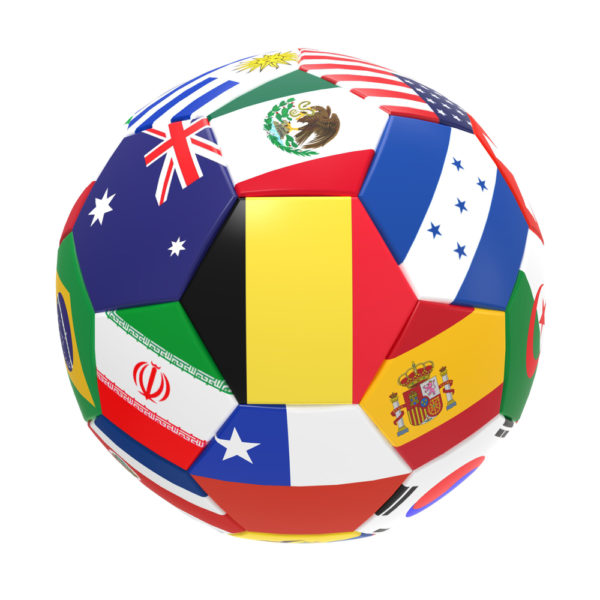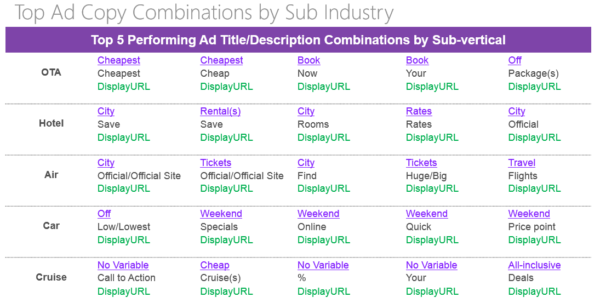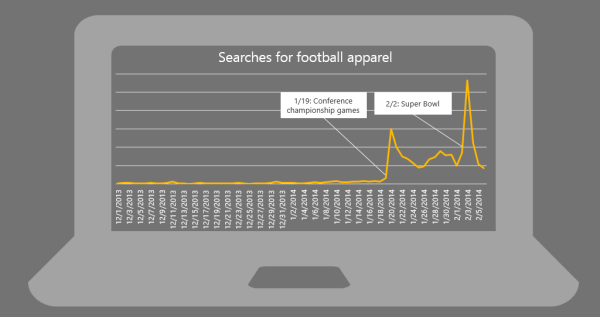Create A Winning Paid Search Strategy For The World Cup
For world-class marketing opportunities, few events surpass the World Cup. Given its global reach, a viewership that by some estimates reached nearly half the world’s population in 2010, and the feverish devotion of football (aka soccer) fans, the World Cup is marketing gold. Marketers that rise to the occasion can score big. Four years after […]
For world-class marketing opportunities, few events surpass the World Cup. Given its global reach, a viewership that by some estimates reached nearly half the world’s population in 2010, and the feverish devotion of football (aka soccer) fans, the World Cup is marketing gold.

Marketers that rise to the occasion can score big. Four years after it first aired, people still talk about and watch Nike’s epic three-minute World Cup ad, which featured football superstars Wayne Rooney and Cristiano Ronaldo — not to mention Homer Simpson.
The 2014 World Cup in Brazil, which runs from June 12 to July 13, will be no different. And based on past history, we can predict that the economic impact of the World Cup will have tremendously wide reach (in real time).
During the 2010 World Cup, for instance, sales of televisions soared in such disparate locations as New Zealand and Turkey.
How Can Search Marketers Take Advantage?
Few marketers can match the ability of Nike to spend whatever it takes to grab attention, but the right marketing approach still can have a big impact. It pays to first really understand the singular nature of the World Cup:
- The U.S. has joined the world in its love of soccer. At no time has soccer been more popular in the U.S., where it is growing and setting records. In March, 7 million Americans tuned in to watch the U.S. battle Mexico, setting a new record for a World Cup qualifier.
- Football is not just for men. Most major sporting events are dominated by male viewers, but FIFA says 43 percent of global live viewership of the 2010 World Cup was female.
- Consumer are tuned in across digital devices. Record mobile viewership is expected with tablet and smartphone ownership soaring and 64 games packed into 32 days. For instance, during the 2010 FIFA World Cup games, we saw mobile data bandwidth usage grow by 24 percent during matches, with web traffic increasing 35 percent during matches.
Of course, with opportunities come challenges, and the FIFA World Cup is not without hurdles. The 45-minute continuous halves in football limit broadcast options. That means space is scarce for ad buys, and global sponsorship packages are sold out years in advance. And of course, where there is scarcity, costs go up.
What Can I Learn From The Yahoo Bing Network?
Let’s turn to a few market segments that are apt to see a boost from the World Cup, and that search marketers can relate to: travel, retail, electronics, and events. We’ve done some research in these areas based on data from the Yahoo Bing network, and found some useful things to think about.
Travel
In this category, we analyzed thousands of ads, grouping one- and two-word phrases into different buckets and then analyzing the performance. Phrases within each bucket needed to appear in ads from at least 10 advertisers and were sorted based on a weighted average of positive ad quality and impressions.
Overall, we found it’s a good practice to call out specific cities and rates in ad copy. High-performing mobile ad copy focused on brand, location, and call-to-action. It also helps to use action-driven, time-sensitive words such as “find,” “book,” and “now” in your mobile ad copy. With regard to specific sub-verticals:
- OTA: Bargain-hunting remained the theme throughout devices. So highlight “percent off” in ad copy.
- Airlines: Call out specific cities in your targeted route, and use “official” in your PC/tablet ad copy.
- Car Rental: Companies were most successful reaching PC/tablet users when they used bargain-oriented phrases combined with the word “weekend.”
- Cruise Lines: Searchers predominantly looked for all-inclusive cruise deals, and continued to search for cruise brands on mobile devices. Adding “official” or “trademark” built trust with mobile searchers.
For advertisers in retail (specifically, apparel), electronics and event planning, let’s shift gears and utilize research from the Super Bowl as a proxy to understand consumer search behavior.
Why the Super Bowl? It’s a single-sport event, unlike (for example) the Winter Olympics. It has a tournament format similar to the World Cup, which builds suspense. And it’s recent — the last World Cup was four years ago, and the world has changed since then.
Apparel
We found there were two spikes in searches for football-related apparel: the day after Super Bowl teams were known and the day after the big game. That indicates that advertising should be linked to the progress of the event, and that advertisers need to have several ads planned to take advantage of winning teams.
Electronics
As I noted above, this is a category that can benefit significantly from big sporting events like the World Cup. This past January, we saw that searches for buying televisions peaked the Thursday before the Super Bowl. This was the highest peak since Cyber Monday.
The four days leading up to the Super Bowl had 32 percent more TV-buying searches than the same days the previous week. As consumers think about the game, they are waiting until the last minute before making the upgrade purchase decision.
Event Planning
Searches for recipes and food platters increased sharply in the week leading up to the Super Bowl, far surpassing searches for football-themed decorations or games.
Advertisers associated with anything from catering to food/snack/beverage retail should plan budgets accordingly.
Winning World Cup Marketing Strategies
My first suggestion is to think mobile, as that space is poised to offer significant opportunities. Advertisers could create sponsored alerts and travel guides to competitions. Or utilize interactive games to engage customers. Overall, mobile provides tremendous prospects for brands to add value.
Next, put more focus on social, digital and experiential platforms, such as digital billboards, which give advertisers flexibility and immediacy versus traditional billboards. Plus, they interact well with today’s mobile consumers, who have smartphones and tablets wherever they go.
A third key is to employ video, which has the potential for high sharing and a lots of views. After the U.S., Brazil is Facebook’s second-largest market and also provides YouTube with its second-most unique visits. If marketers can leverage those statistics, they can have a big impact.
Finally, search is significant. In June 2012, the U.K. Summer Olympics helped drive 1.47 billion searchers to conduct 173 billion searches (with year-over-year increases of 10 percent and 12 percent, respectively), making for 117 searches for every searcher on the planet.
Don’t Miss Out On The Action
Clearly, the World Cup is one of those sporting events that comes along rarely, has great impact, and can reap enormous rewards for savvy marketers. The event’s global reach and enormous fan base create hundreds of ways to find an audience that’s right for you. Good planning now will ensure you’re in the game!
Contributing authors are invited to create content for Search Engine Land and are chosen for their expertise and contribution to the search community. Our contributors work under the oversight of the editorial staff and contributions are checked for quality and relevance to our readers. The opinions they express are their own.
Related stories
New on Search Engine Land



